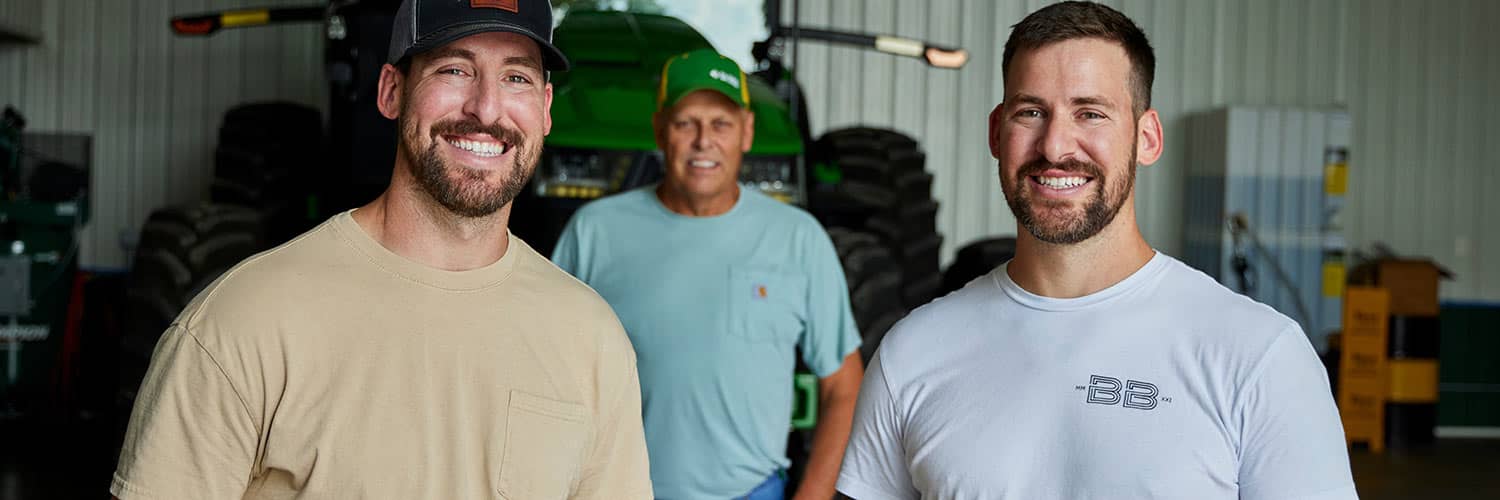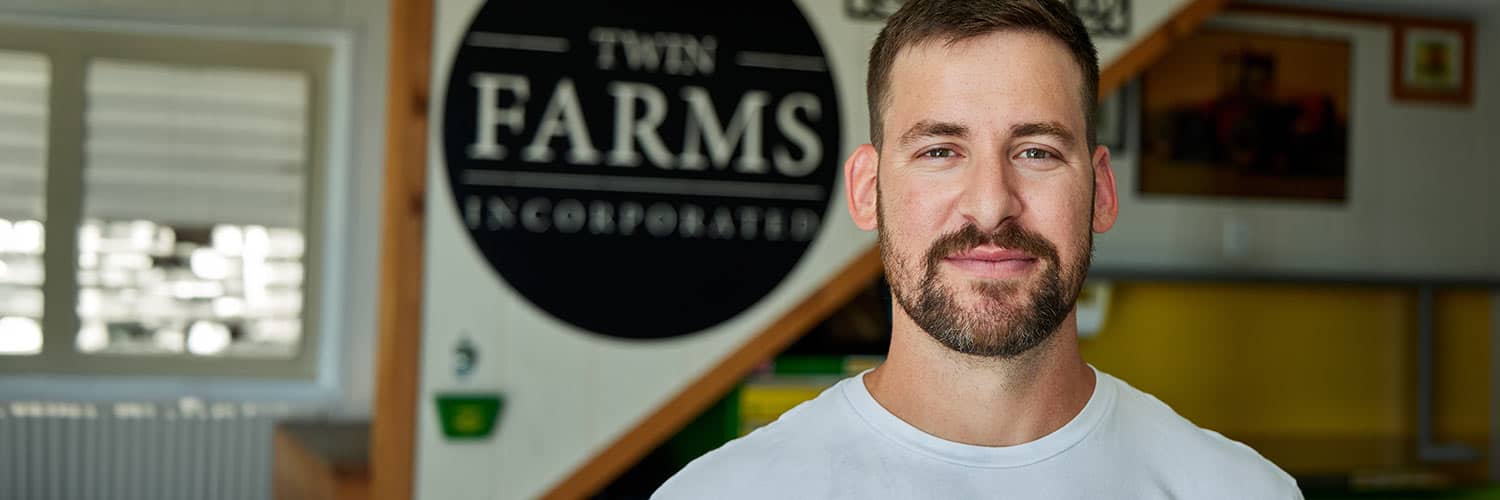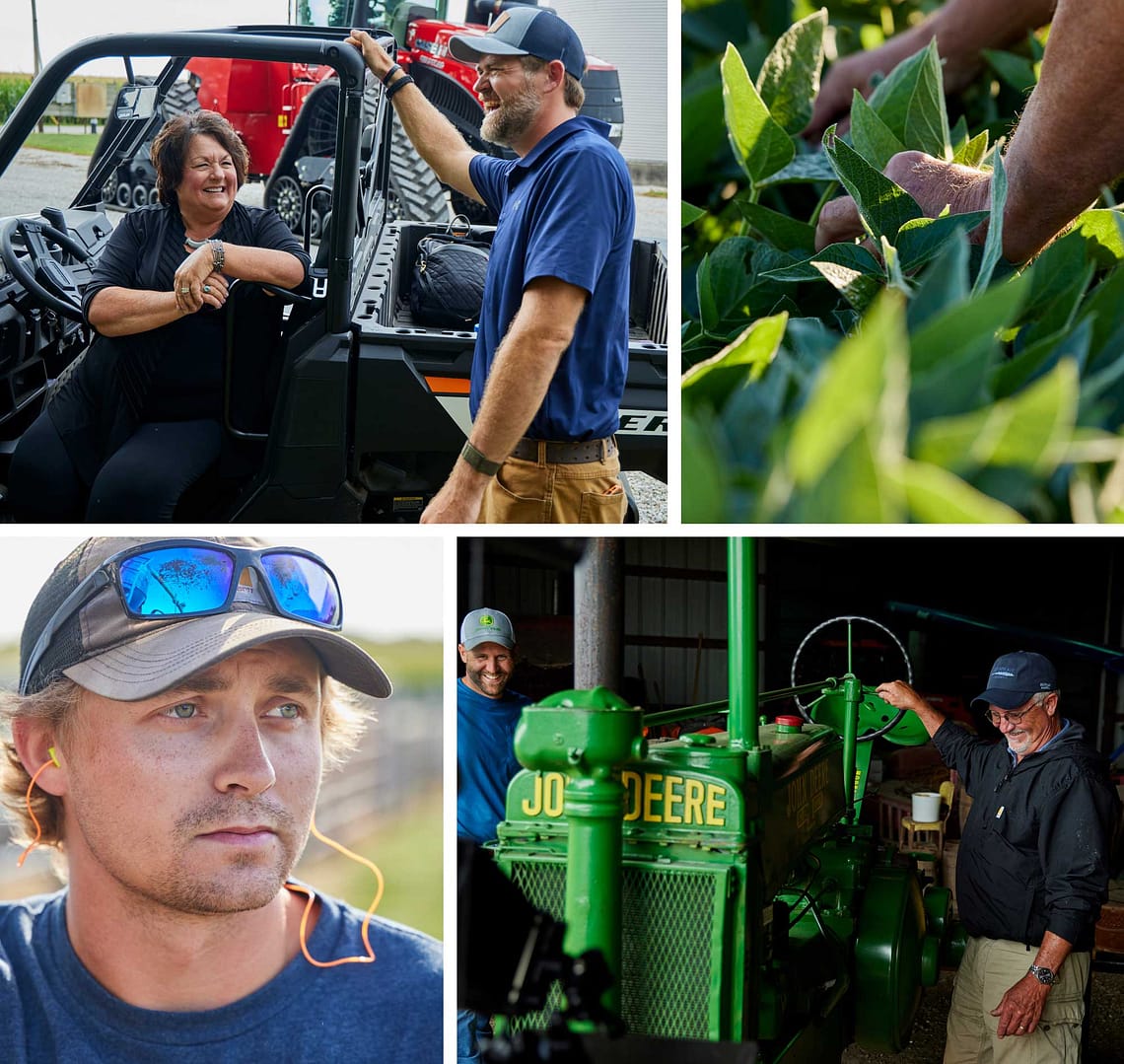Faces of Food: Farm Transitions, Difficult Decisions
Most farm families want to see their land transition to the next generation, continuing a legacy that’s often decades long. It’s only rational. But getting there is also often emotional.
Keeping the Twins on Twin Farms
Jordon Baird sits patiently on a stool in the middle of his family farm’s shop, which now serves the role of make-shift film studio. Surrounded by lights and a boom microphone, he faces the camera and interviewer with trepidation and anticipation.
Immediately behind the interviewer is Jordon’s identical twin brother, Jerrod. Behind him, parents John and Juli Baird sit at a table that typically hosts weekday lunches and discussions of the grain markets and local happenings.

As the interview begins, Jordon becomes more comfortable. He explains his role on the farm. The farm’s history. His personal journey away from the farm. Then his return.
As Jordon relates his experiences and observations, his brother often speaks up in agreement. “You know what I would say? The exact same thing!” Jerrod offers after Jordon gives his thoughts on the legacy and values his dad and grandfather built for their farm.
Identical twins, differing decisions
A farm’s transition from one generation to the next can be complicated – if it happens at all. Many kids who grow up on farms choose to strike out on their own rather than remain on the farm. That was the case with Jordon.

“I was so focused on just having the world, and seeing things, and going places,” he relates. “And I was a kid, you know? I was 18-years old.”
While they have many things in common, each brother clearly makes his own decisions. Jordon initially chose a path away from the farm. Jerrod went to school for agriculture with the intent of returning to farm.
But after several years living in the city and working in healthcare during the COVID-19 pandemic, the call of the family farm was strong for Jordon. He began talking with Jerrod about his desire to return.
Welcoming return continues a legacy
Jerrod encouraged Jordon to talk with their parents about coming back to the farm. But that discussion was a tough one for Jordon to initiate.

“I already approached him (John) once about leaving, and then I had to kind of swallow my pride – tell him I wanted to come back,” Jordon explains.
While both John and Juli were excited to welcome Jordon back, there is still an economic reality to face. “To try to raise a family on the farm, it takes a lot of money to operate,” John says.
Jerrod adds that their farm, Twin Farms, supports four families including a full-time employee. They’ve also started an additional business, Fortus Flame, that manufactures and sells smokeless fire pits.
But John stresses, it’s the coming generations that drive what they do on the farm each day. The decisions they make to keep the farm in the family.
“My dad’s goal, my grandfather’s goal, was to keep the land intact because they worked too damn hard to see it get sold off like so many farms do. This day and age, when it goes through generations, and it disappears because they look at the money and they want it now.”

Instead, John believes each generation should consider how hard their ancestors worked to pay for land and make it what it is today. The land of Twin Farms will be in Jordon and Jerrod’s hands soon, and John says they know how hard their grandmother and grandfather worked to buy the land. And they’ve heard the stories of their ancestors.
“So, hopefully, they can continue to make the farm grow and keep it strong. Keep the legacy going.”

More American Farm Stories
The men and women who operate farms across this great country have great stories to tell. Of hard work. Challenging conditions. Overcoming obstacles. Family members working together. Over many generations. And hopeful for the future. Take the time to hear their voices.
